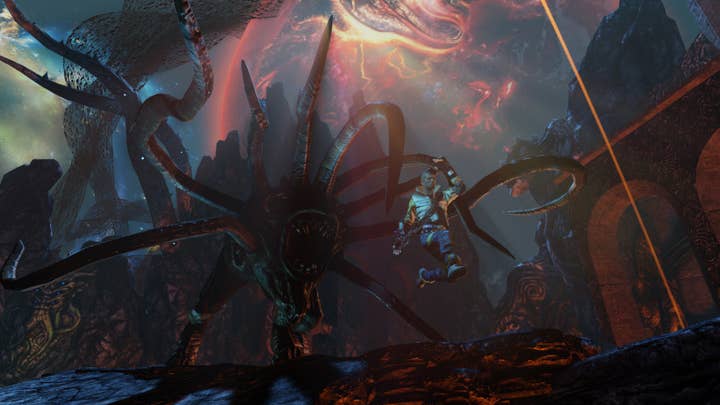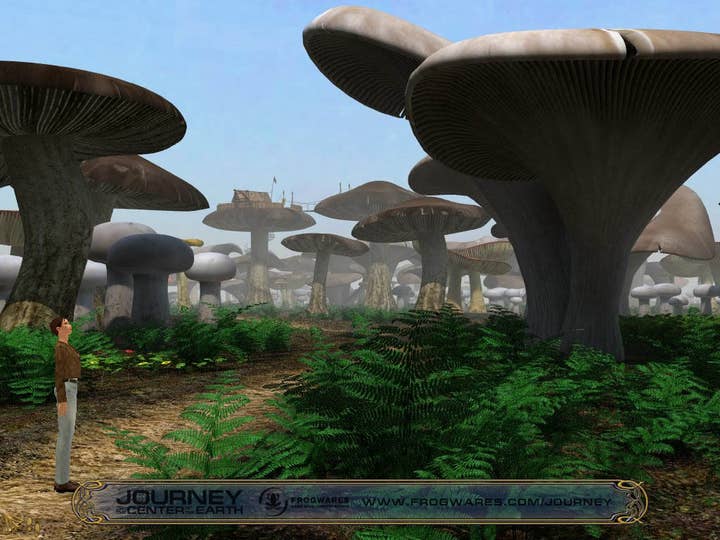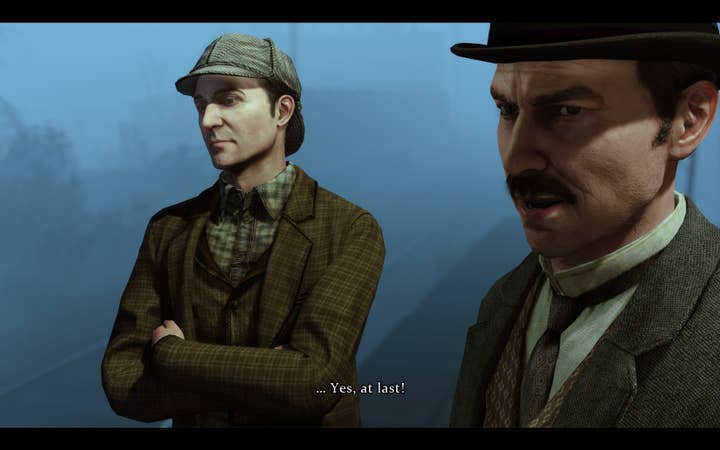After 20 years, Frogwares leaps fully into self-publishing
CEO Wael Amr on why falling out with Focus Home Interactive was proof of the need for self-reliance, not the catalyst
It was always going to be a busy 2020 for Frogwares, as it transitioned to a fully self-published business model. But then there was the whole matter of having to effectively re-publish and re-certify a good chunk of its back catalog.
Late last year, the Ukrainian studio suffered a blow when its distribution deal with Focus Home Interactive ended, and it didn't get the store listings for most of its games back.
At the time, Focus Home declined to comment, and Frogwares said the French publisher had cited a policy of not transferring titles belonging to developers with which it no longer has any business -- despite such a policy not being present in any of Frogwares' contracts.
This left Frogwares in a frustrating position. It owned all its games outright, but the storefront pages were being taken down. While transferring a storefront is a relatively simple process, Focus Home's refusal to go through with it meant that Frogwares would need to set new storefronts and submit new certification for each game -- a process that takes time and money.
"We just wanted to be sure... that we had it in us to make the jump, meaning that we had enough resources to go in this direction"
For some of its games, such as the PS4 release of Sherlock Holmes: Crimes and Punishments, it was worth the cost for Frogwares to make them available again. But speaking to GamesIndustry.biz, CEO Wael Amr says it is unlikely the studio will ever recover the PS3 and Xbox 360 versions of its catalogue.
One point Amr wanted to clarify right off the bat was that while Focus Home Interactive had referred to itself as the publisher of various Frogwares titles -- and indeed, still does -- the relationship between the two companies was not a traditional publishing agreement.
"A traditional publisher is usually an investor which holds the rights to the IP they sponsor," Amr says. "This was absolutely not the case for us and the licensees we have worked with. For example, we own the copyrights to all our games, including Sherlock Holmes and The Sinking City.
"The companies we worked with were licensed by us to commercialize our games -- that means we agreed they would serve as an intermediary between us and local distributors and stores. Whenever our game was sold somewhere, they would collect the revenue and bring it to us, excluding their cut, of course."

This, he says, has been the case for every such partner Frogwares has worked with for over 20 years -- at this point, more than 40 different companies -- but now it wants to adopt a different strategy of self-reliance. While the situation with Focus Home certainly pushed them further in that direction, Amr says it wasn't the catalyst.
"Frankly, we've been aiming to go self-publishing for a long time, and the situation you are referring to hasn't affected our decision, only reinforced the notion it's best we do it," he says. "We just wanted to be sure that we were 'there', that we had it in us to make the jump, meaning that we had enough resources to go in this direction. Now that we have a publishing team inside our studio, we feel quite excited about the opportunities self-publishing might provide."
Frogwares' decision to fully self-publish has been in the works for years, sparked by changing market trends that Amr saw coming long before its deal with Focus Home turned sour.
"Ninja Theory, Bluehole, 11bit, Techland, CD Projekt -- all struck out on their own and found success"
When Frogwares first started, the retail focus of the market made it challenging to manage both development and production of physical copies -- hence the need for partners like Focus Home. But, he says, the digital shift of the last decade has made room for developers to self-publish with greater ease.
"I think the first clue was in the 2010s when digital distribution really started gaining weight, and now it has clearly solidified itself as a totally viable distribution route. With digitization, and gamers accepting the move to digital software, you no longer needed the middle-men when it came to distribution. You can set up our own storefronts, do your own marketing and keep your IP's, storefronts, and promote the game the way you want to, and release it in a state and time that you want. Digital storefronts, especially like Steam allow you to talk to people and sell our product directly to them. And as we all saw, small indies absolutely pounced on this and many flourished.
"But then the next indicator was seeing bigger AA and AAA studios actually taking the risk of self-publishing and seeing it pay off spectacularly. Ninja Theory, Bluehole, 11bit, Techland, CD Projekt, etc. -- all struck out on their own, found success, and then built up a strong foundation to allow them to carry on being independent and producing games with 100-plus people teams."
This doesn't mean Amr thinks publishers are obsolete. Rather, he believes that the role of publishers and distribution partners is going to shift -- and, in fact, already has shifted. While the need for physical distribution partners is no longer as pressing, the onus is now on publishers to provide more value for developers, tipping the scales in the latter's favor.

"We've now seen how some AA and AAA studios can find themselves in situations where funding the development of their games is fully in their control," he says. "And when that happens, the need for a publisher would more likely go towards 'What else can you do for us?' or 'What can you take off my plate so I don't need to worry about it?' -- versus a few years back when simply getting out the door required that you sign with someone. It shifts a bit more of the power over to the creators and ensures agreements are more mutually beneficial."
"Making sure you have enough money to support your studio during development and at least six months after is a good start"
Despite the road bumps last year, Amr believes Frogwares is well-positioned for self-publishing. The company already has a catalog of titles bringing in revenue to support future game development -- all the Sherlock Holmes games combined have sold over eight million units -- as well as cash reserves. The Sinking City launched on the Nintendo Switch in September 2019 with Frogwares self-publishing, and just received a license for the eshop in Hong Kong as well. Amr adds that even though it was digital that spurred Frogwares into its self-published future, it's considering physical release possibilities as well.
Amr acknowledges that Frogwares' path is not right for every developer. However, he concludes with some advice for those considering making a similar leap.
"Every situation can be monumentally different, but as proven by a few others in the industry and ourselves, successful self-publishing is built on the foundations of: one, you can fund and manage your game's development; two, you can invest in marketing, whether internal or external; and maybe three, you aren't necessarily looking to do physical retail right away.
"Not to sound like a broken record, but making sure you have enough money to support your studio during the development of your game and at least six months after that is a good start. There's a good chance your game won't make millions right after it's released, and the break-even point might come months after. Having a marketing team is an absolute must too.
"And now that you are on your own, keeping a closer eye out for numerous changes and opportunities that are happening each year. It's easy to ignore a lot of what is happening when you are so focused on the dev side of things."

